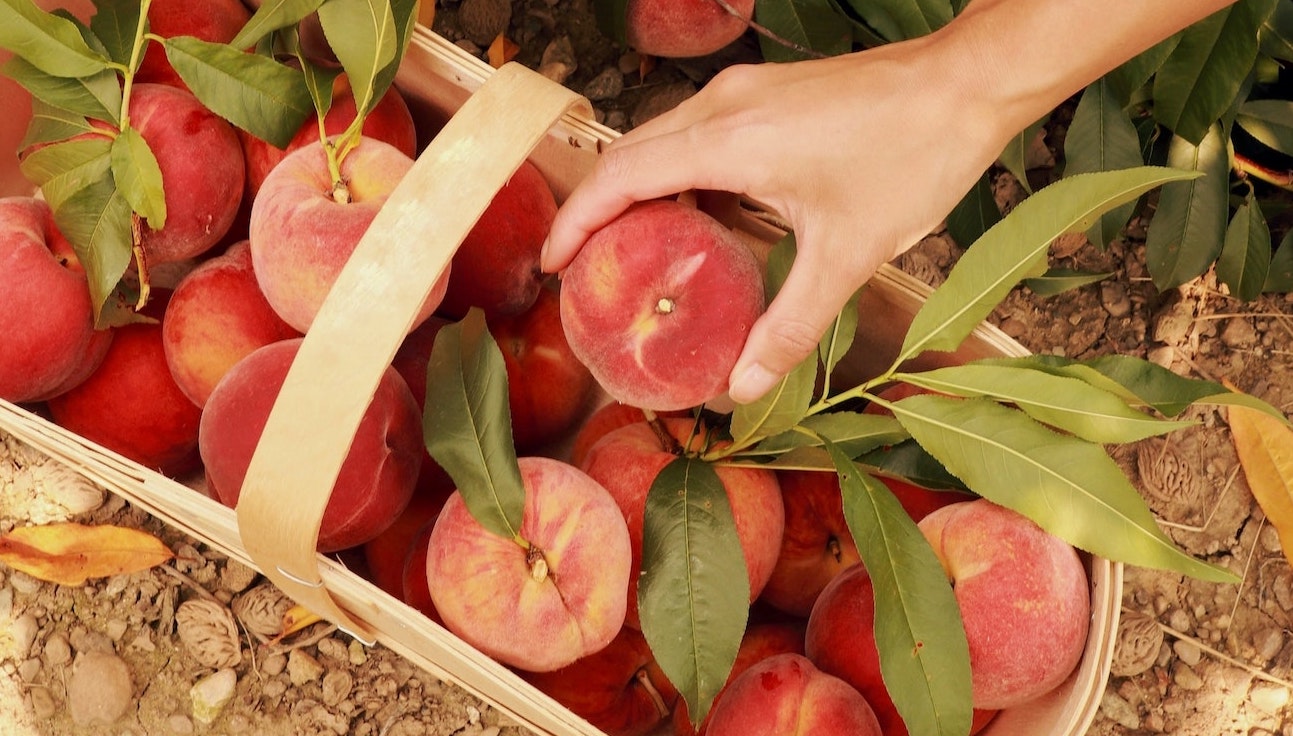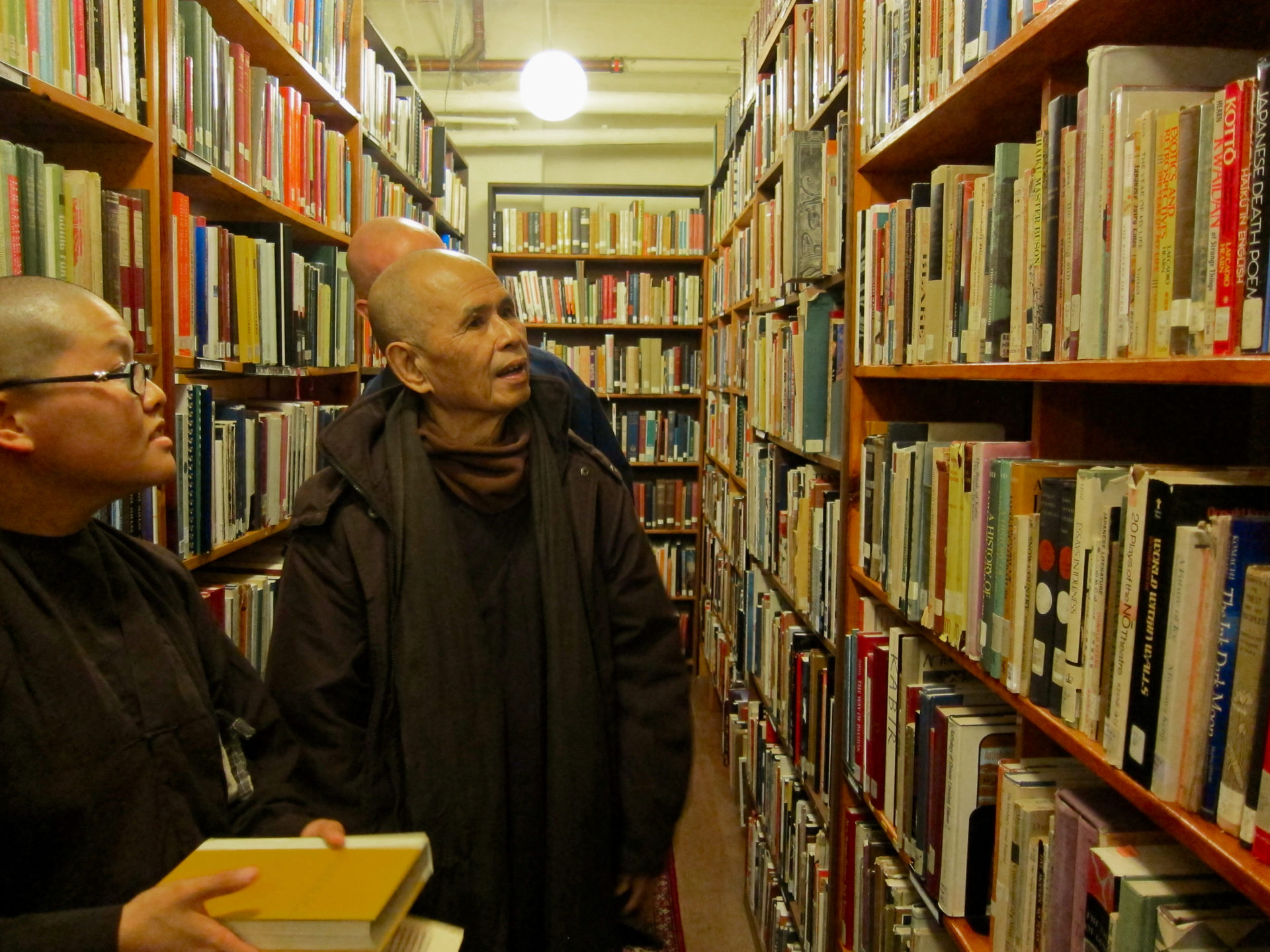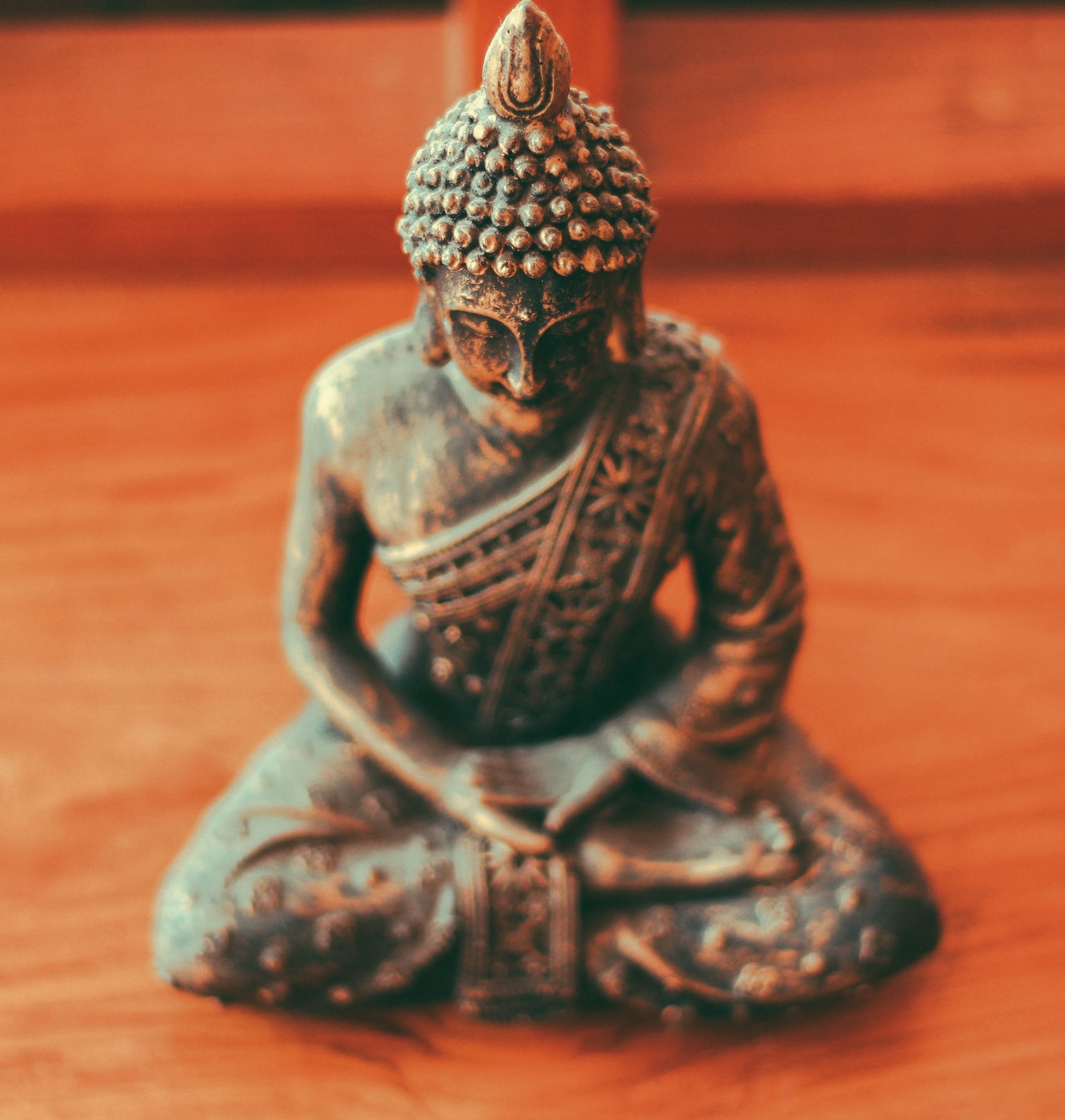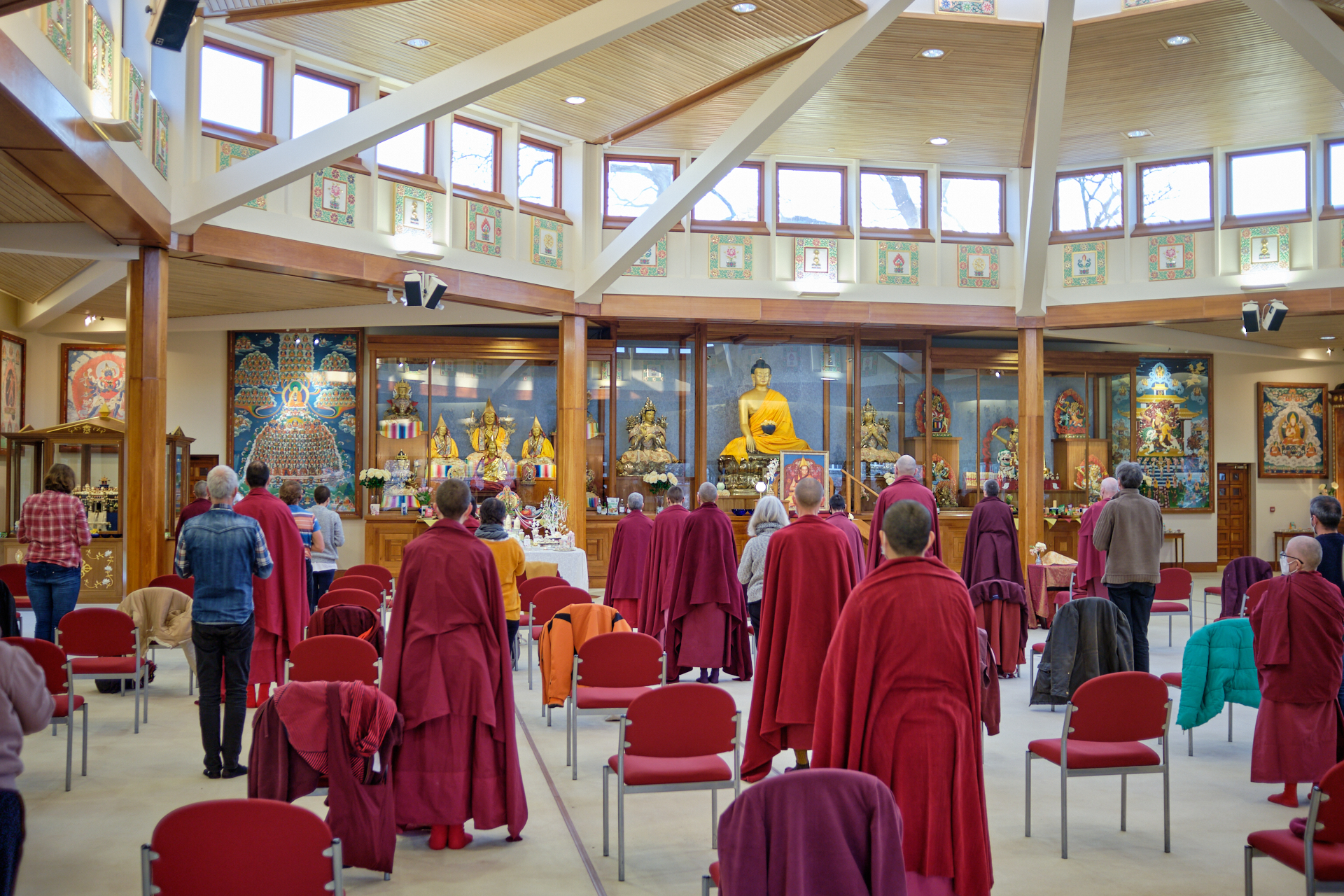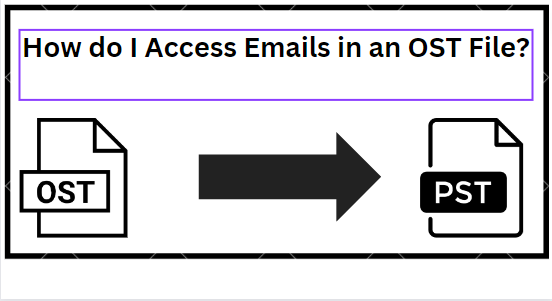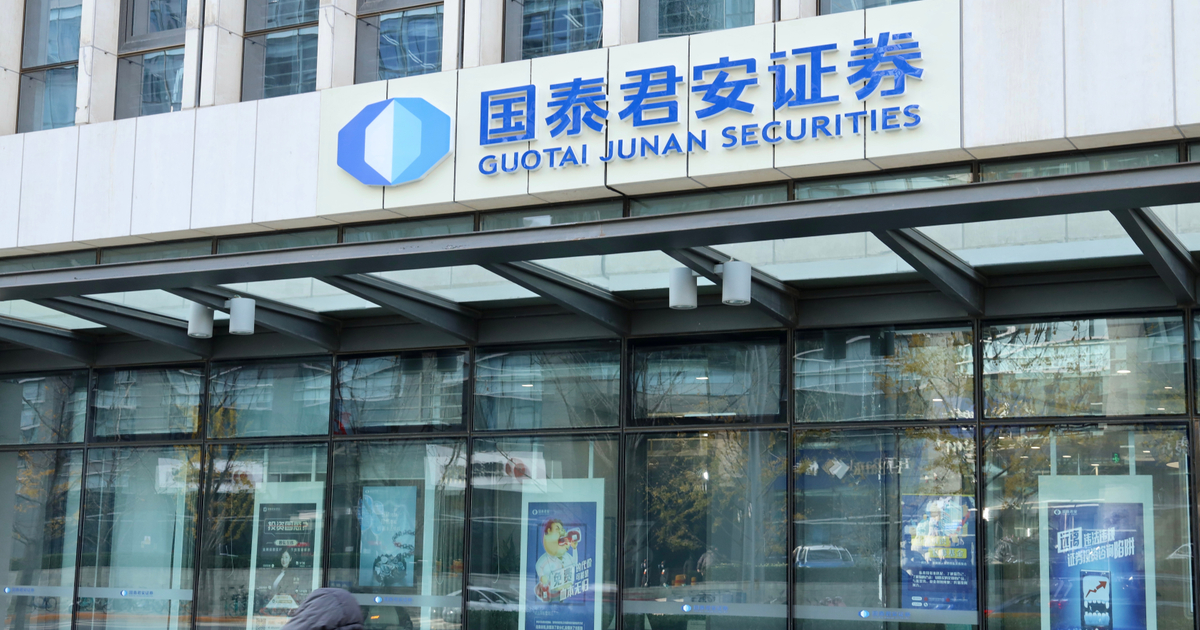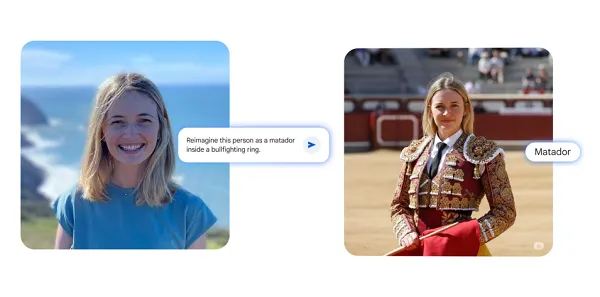Running Back Into the Fire
In a recent episode of Life As It Is, mutual aid activist Shelly Tygielski discusses her work building communities of care in times of crisis. The post Running Back Into the Fire appeared first on Tricycle: The Buddhist Review.

Trike Daily Good WorkSociety & Environment
In a recent episode of Life As It Is, mutual aid activist Shelly Tygielski discusses her work building communities of care in times of crisis.
By Shelly TygielskiJun 06, 2022 Photo by Demetrius Philip
Photo by Demetrius PhilipOn March 14, 2020, just after COVID-19 was declared a national emergency, meditation teacher and activist Shelly Tygielski wanted to find a way to support her community in South Florida. She decided to create two simple Google forms: one to give help and one to get help. She shared both forms on social media. The next morning, each form had over 500 responses from around the country. As more requests for help kept pouring in, the mutual aid organization Pandemic of Love was born. Since Pandemic of Love’s conception, the organization has connected over 2 million donors with individuals and families in need and has responded directly to global crises including hurricanes, mass shootings, and the ongoing war in Ukraine, distributing over $150 million worth of supplies and resources to Ukrainian refugees in Poland and surrounding nations.
In a recent episode of Life As It Is, Tricycle editor-in-chief James Shaheen and co-host Sharon Salzberg sat down with Tygielski to discuss her work in Ukraine, the history of mutual aid, and the radical power of just showing up. Read excerpts from their conversation below, and listen to the whole episode here.
On the power of communities of care
I started getting involved in mutual aid incredibly informally. Through working as a community organizer and meditation teacher in South Florida, I got to know a lot of the people in our community. I saw that a lot of these individuals had unmet needs, sometimes financial, sometimes something as simple as a ride to meditation on Sunday mornings. I also realized that there were people in our community who could fill those needs. If I could be the matchmaker and then step out of the way, we could start to create communities of care, where we bring people together, create safety nets, remove the stigma of asking for help, and build and live in a community where we recognize that every single person, regardless of their socioeconomic status, has something that they need and something that they can give. As our community continued to grow, we were able to come together in the face of tragedies including hurricanes and mass shootings simply by creating these direct connections. Rather than creating a nonprofit organization or a formal charity, we found a way for people to connect, to have conversations, and to form strong, sustainable methods of being in community together.
On the evolution of Pandemic of Love
As of May 2022, Pandemic of Love has over 4,000 volunteers in close to 300 communities across 20 countries, and we’ve connected over 2.2 million individuals who have transacted directly over $62 million. It’s a staggering number. And it reminds me that a lot of people doing a little bit really makes a huge impact—if we’re all committed to doing even one thing, then it can make a big difference in the world and in people’s lives. I think that Pandemic of Love has taken off because people recognize how important human connection really is, especially during the time of the pandemic. Being able to connect with others is a necessity for our survival as human beings. At a time of forced physical disconnection, having a way to connect with somebody in a meaningful way was a very powerful thing. Picking up a phone and asking a person in need in your community, “What do you need? And how can I help you?” is such a powerful act that goes beyond paying someone’s utility bill. In the process, you’ve helped someone feel seen and heard, which is not something we should take for granted.
 Photo courtesy Shelly Tygielski
Photo courtesy Shelly TygielskiOn the relationship between self-care and social transformation
There’s an intricate and undeniable connection between inner work and the way we show up in the outer world. I do believe that it’s important to start with inner work. It’s very important for us to understand our origin story—our traumas, our trials, our tribulations. But I see a lot of people who get stuck in that inner work loop. It’s like a hamster wheel. They fail to connect all of the classes that they’re taking and the personal work that they’re doing to the way that they’re showing up in the world. This is why I always tell people: Even if you don’t feel like you’re ready, just show up anyway. You may feel like you’re not fully healed or you don’t have all the right skills or the pedigree to start something. But whatever stories you’re telling yourself about why you can’t change something or why you can’t do something, just show up. Helping other people can actually inform a lot of our inner work. The work we do in the outer world can make it easier for us to connect the dots.
On the obligation to care
I don’t know if this was embedded in me by my parents or by my community, but if I am not completely consumed by a fire and I’m able to get out alive, then I feel like I have a moral obligation to grab pails of water and run back into the fire. This helps me feel less helpless, and it also makes me feel that rather than just sitting in my sorrows and complaining, I’m actually doing something to contribute to a better world. When there’s a crisis, I immediately think about the actions that I can take. What can I do in this moment that’s tangible and actionable, something that can be of assistance? It might be something really small: something like a kind word or picking up the phone and reaching out. But that small thing could be a huge thing for the person receiving it. I want to live in a world where every single person has enough. The only way to achieve that is by making sure that the people who have more than enough are actually lifting up and giving to the people who don’t have enough. This is the work of Pandemic of Love, and this is the work that informs my life on a daily basis.
♦
Life As It Is is a podcast series that features Buddhist practitioners speaking about their everyday lives. You can listen to more of Life As It Is on Spotify, iTunes, SoundCloud, Stitcher, and iHeartRadio.

Get Daily Dharma in your email
Start your day with a fresh perspective

Explore timeless teachings through modern methods.
With Stephen Batchelor, Sharon Salzberg, Andrew Olendzki, and more
![]()
Thank you for subscribing to Tricycle! As a nonprofit, we depend on readers like you to keep Buddhist teachings and practices widely available.
This article is only for Subscribers!
Subscribe now to read this article and get immediate access to everything else.
Already a subscriber? Log in.

 Troov
Troov 








